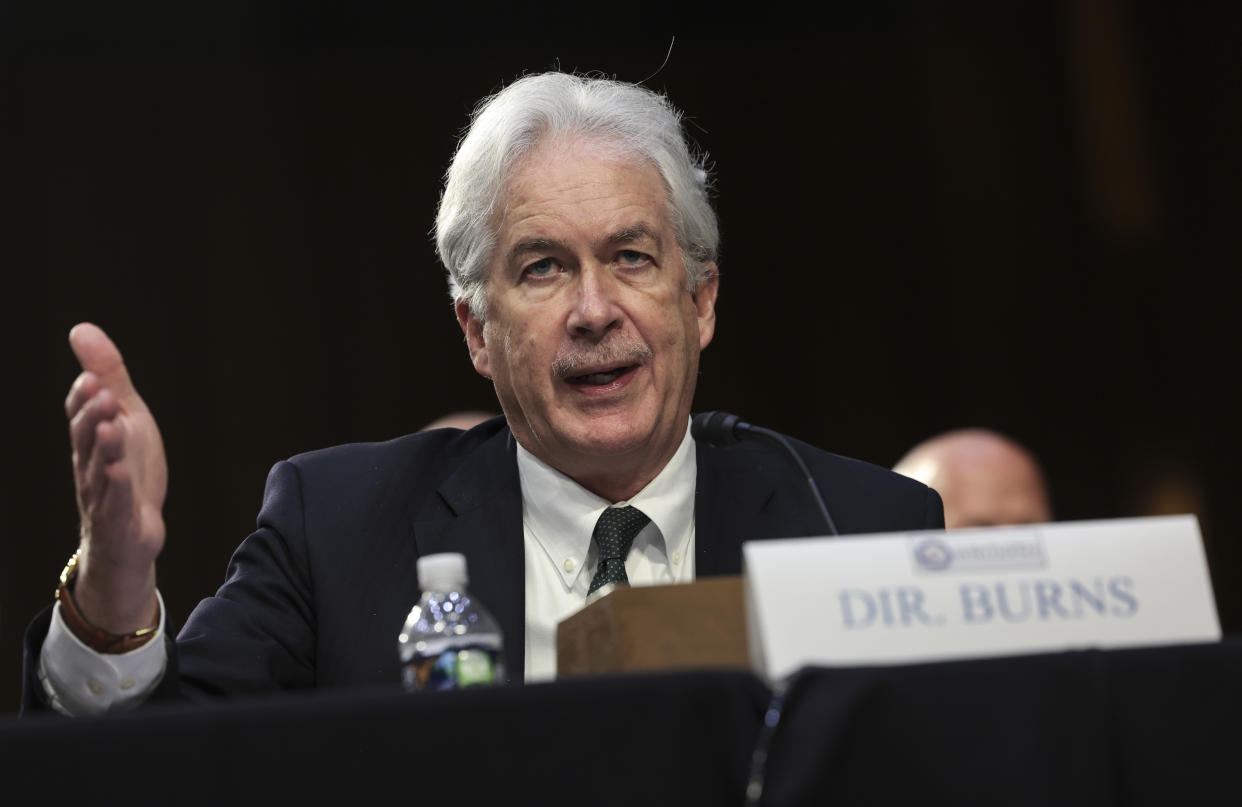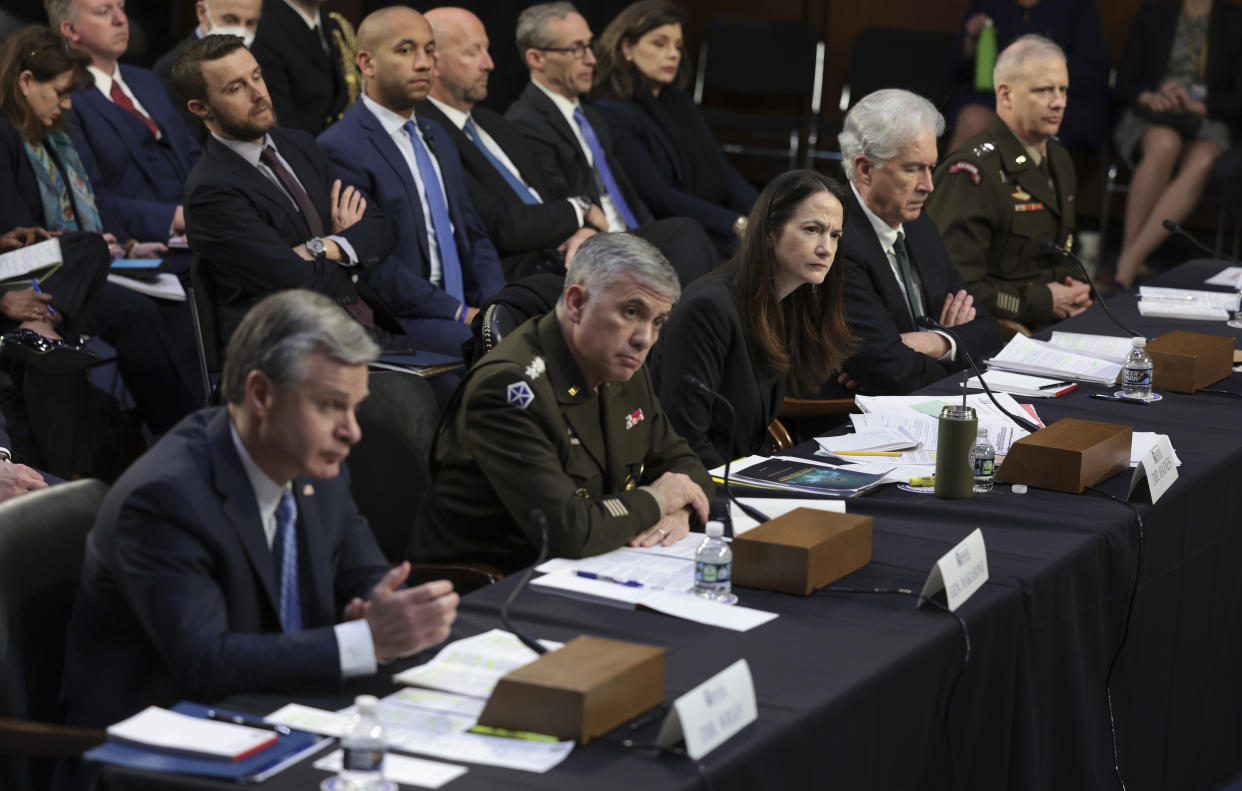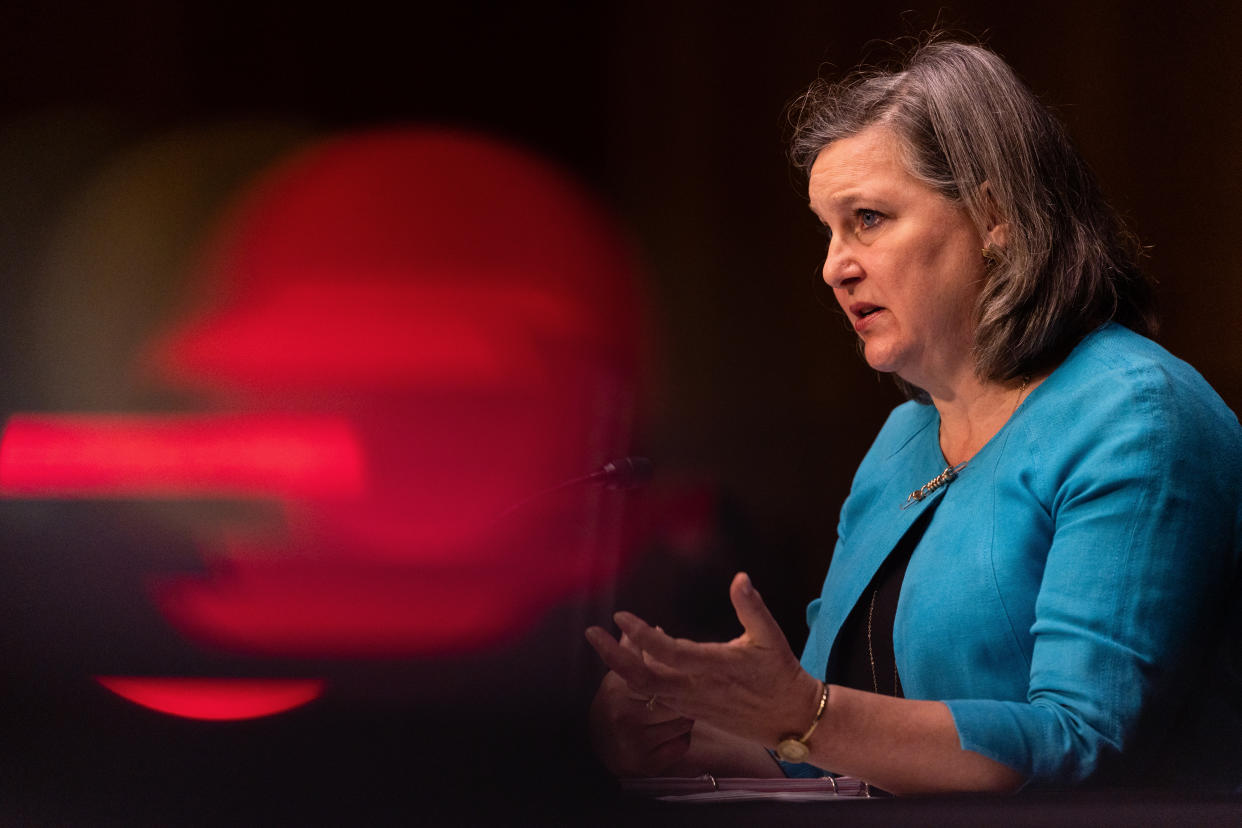U.S. intelligence pushes back on Putin's bioweapons propaganda
Russia is trying to use baseless claims of a secret Ukrainian bioweapons program as a pretext to seize sensitive facilities in the country, top U.S. intelligence officials warned senators on Thursday.
“Clearly, there is a difference between bioresearch centers and bioweapons centers. Is there anything you can do to help clarify some of the things that are already floating? Because I’m fearful that this could be the new direction of a Russian false flag operation,” Senate Intelligence Committee Chairman Mark Warner asked CIA Director William Burns on Thursday.
“Unlike Russia, which does have chemical weapons and has used them, and does do biological weapons research and has for years, Ukraine has neither,” Burns, a former U.S. ambassador to Moscow, replied.
Burns noted that Russian President Vladimir Putin has used chemical weapons in recent years to assassinate his opponents. “And when you couple that with their demonstrated willingness to create false flag operations and try to create the impression that somehow Ukrainians are responsible for this, that should give us all pretty serious reason for concern about their propaganda,” Burns added.

The Kremlin claimed Wednesday that the U.S. was working covertly with Ukraine to develop bioweapons. The U.S., which ended its own biological and chemical weapons programs decades ago, denies the allegations, saying the Ukrainian labs are left over from the Soviet era and are not used in research for or production of weapons.
Meanwhile, the Biden administration warned Wednesday that Russia may be planning to use chemical weapons in its ongoing war against Ukraine. Press secretary Jen Psaki repeated that concern Thursday at the start of the White House press briefing.
“They have a large biological and chemical weapons program, so it’s a pattern. But they also have the capacity. While I’m not going to get into specific intelligence, we look at all of those factors,” Psaki said. “We also know ... Russia has a history also of inventing outright lies like this.”
Members of the Senate Intelligence Committee peppered the top U.S. intelligence chiefs with a series of questions about the Russian war on Ukraine, which has now entered its third week. Burns, as well as the director of national intelligence, Avril Haines, and other senior intelligence officers, repeatedly warned the committee that Russia, which has struggled to gain ground in Ukraine, is likely to further escalate the conflict.

The hearing came after State Department official Victoria Nuland’s testimony before the Senate Foreign Relations Committee on Tuesday. Nuland told the committee that Ukraine “has biological research facilities” and that the U.S. government was worried that Russia might try to seize control of them. Nuland’s testimony was quickly amplified on social media by pundits critical of U.S. efforts to assist the Ukrainian war effort.
Nuland’s comments came in response to a question from Sen. Marco Rubio, R-Fla., who had asked her if Ukraine possessed chemical or biological weapons.
“If there’s a biological or chemical weapon incident in or attack inside of Ukraine, is there any doubt in your mind that, 100 percent, it would be the Russians that would be behind it?” Rubio asked in a follow-up question.
“There is no doubt in my mind, senator,” Nuland responded. “And it is a classic Russian technique to blame on the other guy what they’re planning to do themselves.”

On Thursday, Rubio, the top Republican on the Senate intelligence panel, asked Burns for further clarification on the Ukrainian labs. “I don't know if you could shed some light on how there can be things in the lab that are dangerous, but they not be weapons labs,” Rubio said.
Burns replied that while the labs are used for civilian research and are in no way part of a secret Ukrainian weapons program, as Russia has alleged, they could still contain dangerous substances that must be handled carefully.
“That is in no way akin to the kind of threats that would be posed by weapons research and development or weapons facilities,” Burns said.
